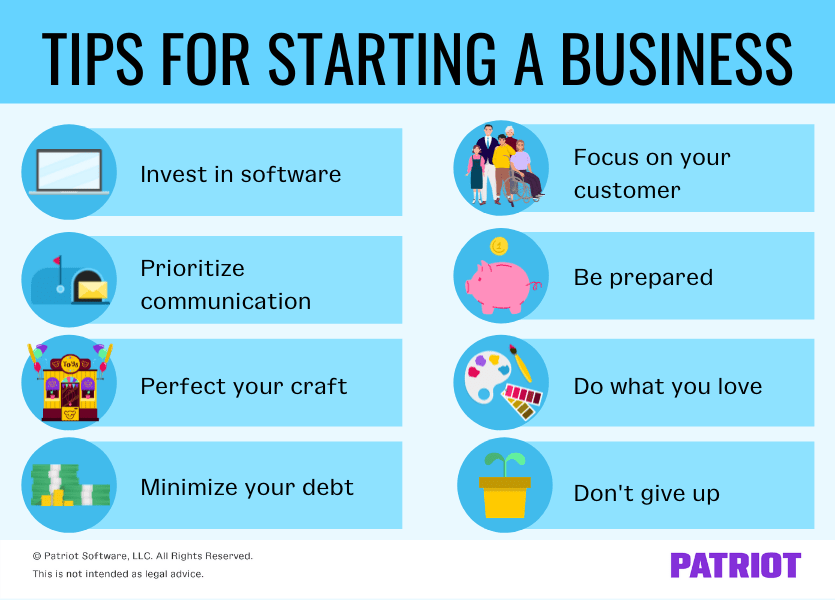Things To Know About Starting A Business

Embarking on the journey of entrepreneurship is a thrilling prospect, but success requires more than just a great idea. Understanding the essential building blocks of a business can significantly increase the likelihood of a thriving venture.
This article will delve into the critical aspects of starting a business, from initial planning and legal requirements to financial considerations and marketing strategies. Aspiring entrepreneurs need a clear roadmap to navigate the complexities of launching and growing a company. It serves as a crucial guide for anyone contemplating taking the entrepreneurial leap.
Crafting a Solid Business Plan
A business plan is more than just a formality; it's the foundation upon which your company will be built.
It outlines your business goals, strategies, market analysis, and financial projections, acting as a compass to guide your decisions.
The U.S. Small Business Administration (SBA) recommends including an executive summary, company description, market analysis, organization and management structure, service or product line details, marketing and sales strategy, and funding request (if applicable).
Understanding Legal Structures and Requirements
Choosing the right legal structure is crucial as it affects liability, taxation, and administrative burden.
Common structures include sole proprietorships, partnerships, limited liability companies (LLCs), and corporations. Each has distinct advantages and disadvantages.
An LLC, for example, offers personal liability protection while maintaining pass-through taxation.
Furthermore, entrepreneurs must comply with federal, state, and local regulations.
This includes obtaining the necessary licenses and permits, registering with the IRS for an Employer Identification Number (EIN) if applicable, and understanding employment laws if hiring employees.
Failure to comply can result in fines or legal repercussions.
Securing Funding and Managing Finances
Adequate funding is essential to get a business off the ground and sustain its operations.
Startup funding options include personal savings, loans from banks or credit unions, venture capital, angel investors, and crowdfunding.
The SBA offers loan programs and resources to help small businesses secure funding.
Managing finances effectively is equally important.
This involves creating a budget, tracking expenses, managing cash flow, and preparing financial statements.
Consider using accounting software to streamline financial processes and gain insights into your business's performance.
Marketing and Sales Strategies
Attracting customers is vital for survival.
A well-defined marketing strategy will help you reach your target audience and generate sales.
This includes identifying your ideal customer, creating a brand identity, and choosing the right marketing channels.
Consider a mix of online and offline marketing tactics, such as social media marketing, content marketing, search engine optimization (SEO), email marketing, and traditional advertising.
Building strong customer relationships is also crucial for long-term success.
Provide excellent customer service, solicit feedback, and create loyalty programs to retain customers.
Embracing Adaptability and Continuous Learning
The business landscape is constantly evolving, so adaptability is key.
Stay informed about industry trends, technological advancements, and changing customer preferences.
Be prepared to adjust your business plan, marketing strategies, and operations as needed.
Continuous learning is also essential. Take advantage of online courses, workshops, and mentorship programs to enhance your skills and knowledge.
The SCORE Association, a resource partner of the SBA, provides free business mentoring and workshops to entrepreneurs.
Networking with other business owners can provide valuable insights and support.
Conclusion
Starting a business is a challenging but rewarding endeavor. By carefully planning, understanding legal and financial requirements, implementing effective marketing strategies, and embracing adaptability, aspiring entrepreneurs can increase their chances of success.
Remember to leverage available resources, seek expert advice, and never stop learning. The path to entrepreneurship is a journey, and preparation is key.
"The secret to getting ahead is getting started." - Mark Twain


















